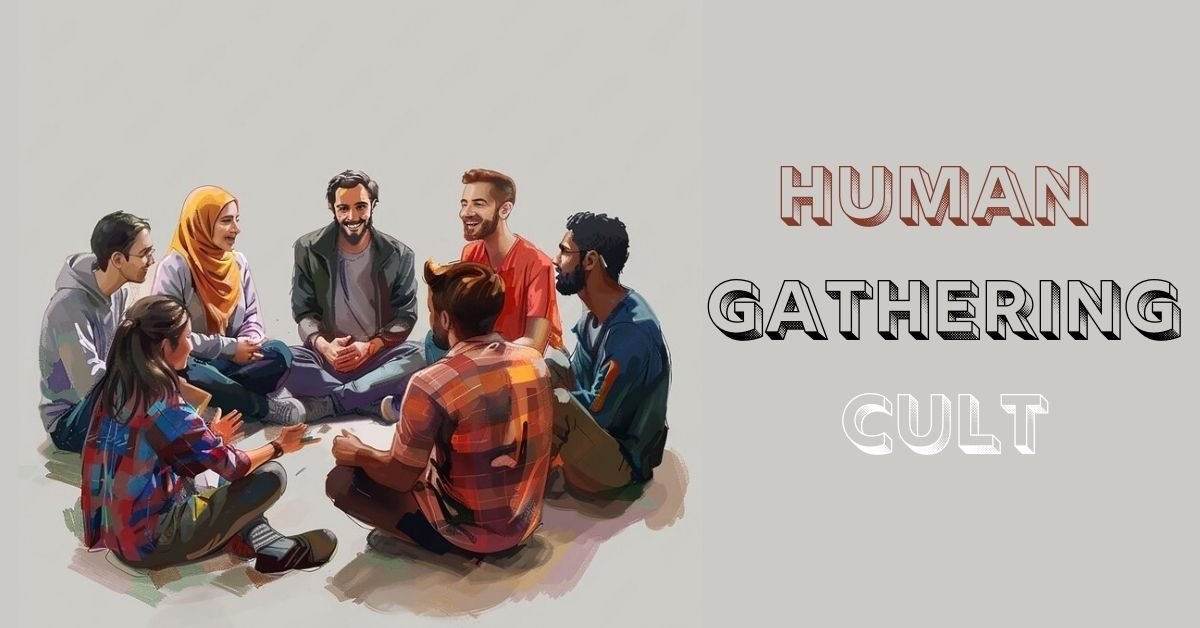Human gathering cult are often shrouded in mystery and intrigue. These groups, typically led by charismatic leaders, attract followers with promises of belonging, enlightenment, or purpose. Understanding the dynamics of these cults is crucial as they can profoundly impact individuals and society. In this article, we will explore the historical background, characteristics, psychological aspects, and societal impact of human gathering cults.
Historical Background of Cults
Human gathering cult have existed throughout history, taking various forms and influencing many aspects of human civilization. Early examples include religious sects in ancient Egypt and Greece, where leaders claimed divine authority and gathered followers for spiritual or political purposes. Over time, cults evolved, adapting to cultural and societal changes while maintaining core elements such as charismatic leadership and exclusive beliefs.
Characteristics of Human Gathering Cults
Human gathering cults share several defining characteristics. Leadership and hierarchy are central to their structure, with a single leader or a small group wielding significant power over members. This leader often claims special knowledge or abilities, creating a dependency among followers. Beliefs and practices within cults can vary widely but typically include rituals, doctrines, and a clear distinction between insiders and outsiders. Recruitment techniques are also pivotal, often involving psychological manipulation and targeted outreach to vulnerable individuals.
Leadership and Hierarchy
In human gathering cults, the leader is often a charismatic figure who exerts significant control over the group. This person may claim divine inspiration, special knowledge, or unique abilities that set them apart from ordinary people. The hierarchy within the cult is typically rigid, with the leader at the top and various levels of subordinates who help enforce the group’s rules and doctrines. This structure ensures that the leader’s authority remains unchallenged and that followers remain loyal and obedient.
Beliefs and Practices
The beliefs and practices of human gathering cults are diverse but usually centered around the leader’s teachings. These can include apocalyptic predictions, promises of salvation, or paths to enlightenment. Rituals and ceremonies reinforce the group’s identity and commitment, often involving elaborate and emotionally charged activities. The practices are designed to create a sense of unity and exclusivity, setting members apart from the outside world and strengthening their allegiance to the cult.
Recruitment Techniques
Recruitment is a crucial aspect of sustaining a human gathering cult. Leaders often target individuals who are experiencing personal crises or feelings of isolation, offering them a sense of community and purpose. Techniques can include love bombing, where new recruits are showered with affection and attention, and gradual indoctrination, where members are slowly introduced to the group’s more extreme beliefs and practices. This process can be highly manipulative, exploiting the vulnerabilities of potential members to draw them into the cult.
Psychological Aspects of Cults
The psychological manipulation employed by human gathering cults is sophisticated and effective. Influence and persuasion tactics are used to control members’ thoughts, emotions, and behaviors. This can involve isolating members from their previous support networks, instilling fear of outsiders, and promoting an “us versus them” mentality. The psychological impact on members can be profound, leading to a loss of personal identity, emotional dependency on the group, and difficulty leaving the cult.
Influence and Persuasion Tactics
Human gathering cults utilize a range of influence and persuasion tactics to maintain control over their members. These can include creating a sense of dependency on the leader, using guilt and shame to enforce conformity, and employing repetitive messaging to reinforce the group’s beliefs. Additionally, cults often exploit cognitive biases, such as the need for consistency and social proof, to solidify members’ commitment. These tactics are designed to break down individual autonomy and foster complete allegiance to the cult.
Psychological Impact on Members
The psychological impact of being in a human gathering cult can be devastating. Members often experience intense emotional and psychological stress, leading to anxiety, depression, and other mental health issues. The cult environment can create a sense of isolation from the outside world, making it difficult for members to seek help or support. Leaving the cult can be equally challenging, as former members may struggle with feelings of guilt, shame, and confusion about their identity and beliefs.
Societal Impact of Cults
Human gathering cults can have a significant impact on society. They often operate in secrecy, creating suspicion and fear among the general public. In extreme cases, cults have been involved in criminal activities, including fraud, abuse, and even violence. The societal response to cults can vary, ranging from legal intervention to public awareness campaigns. Understanding and addressing the issues posed by cults is essential to protect individuals and communities from their potentially harmful influence.
Secrecy and Isolation
One of the defining features of human gathering cults is their secretive nature. Cults often operate in isolation, keeping their activities hidden from the outside world. This secrecy can make it difficult for authorities to monitor and intervene, allowing harmful practices to continue unchecked. The isolation of members from mainstream society also reinforces the cult’s control, as members become increasingly dependent on the group for social and emotional support.
Criminal Activities
In some cases, human gathering cults engage in criminal activities to sustain their operations or further their goals. This can include financial fraud, human trafficking, and physical and psychological abuse of members. The closed and secretive nature of cults makes it challenging to uncover and prosecute these activities, as victims may be reluctant to come forward or lack the resources to seek help. Law enforcement and legal systems must remain vigilant and proactive in addressing the criminal aspects of cults.
Legal and Social Interventions
Society’s response to human gathering cults can take various forms, from legal interventions to public awareness initiatives. Legal actions can include investigations, prosecutions, and the implementation of laws designed to protect individuals from coercive control and abuse. Social interventions can involve education and outreach programs aimed at raising awareness about the dangers of cults and providing support for those affected. Collaborative efforts between government agencies, non-profit organizations, and communities are crucial in addressing the complex challenges posed by cults.
Conclusion
Human gathering cults are complex and multifaceted phenomena that can have profound effects on individuals and society. Understanding their historical context, characteristics, psychological dynamics, and societal impact is essential for addressing the challenges they pose. By recognizing the signs of cult influence and promoting awareness and intervention strategies, we can help protect individuals and communities from the potentially harmful effects of these groups.
FAQs
What is a human gathering cult?
A human gathering cult is a group led by a charismatic leader, characterized by exclusive beliefs and practices, and often employing manipulative recruitment and retention techniques.
How do cult leaders maintain control over members?
Cult leaders maintain control through psychological manipulation, creating dependency, enforcing conformity, and isolating members from external influences.
What are some common recruitment techniques used by cults?
Common techniques include love bombing, gradual indoctrination, targeting vulnerable individuals, and employing persuasive messaging to draw recruits into the group.
What psychological effects do cults have on their members?
Cults can cause severe psychological distress, including anxiety, depression, loss of identity, and emotional dependency. Members may also struggle with guilt and confusion if they leave the group.
How can society address the issues posed by cults?
Society can address cult-related issues through legal actions, public awareness campaigns, education, and support services for individuals affected by cults. Collaboration between various stakeholders is key to effective intervention.











